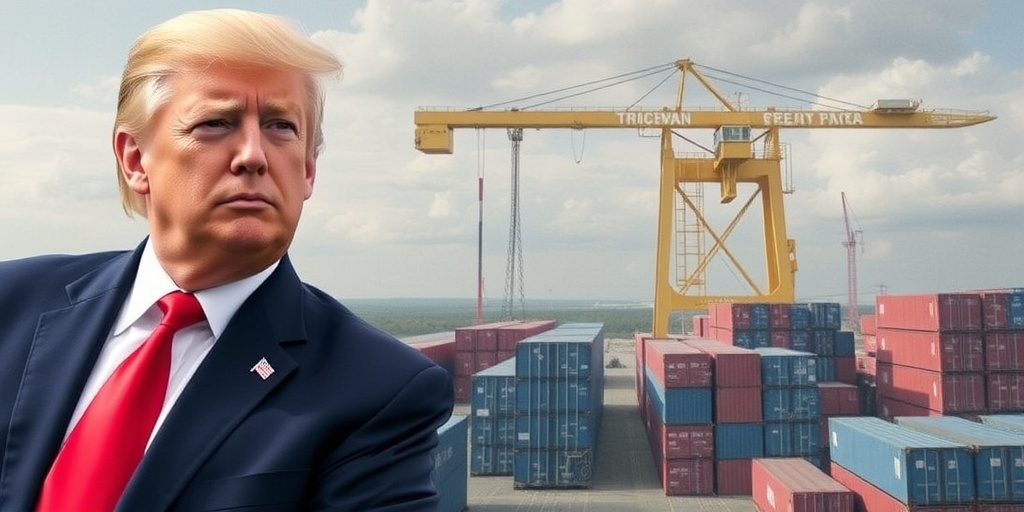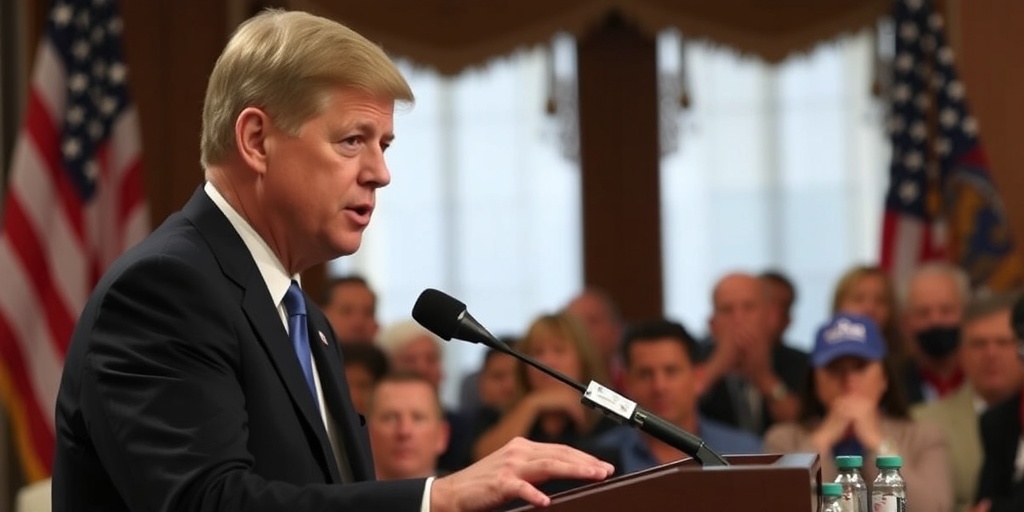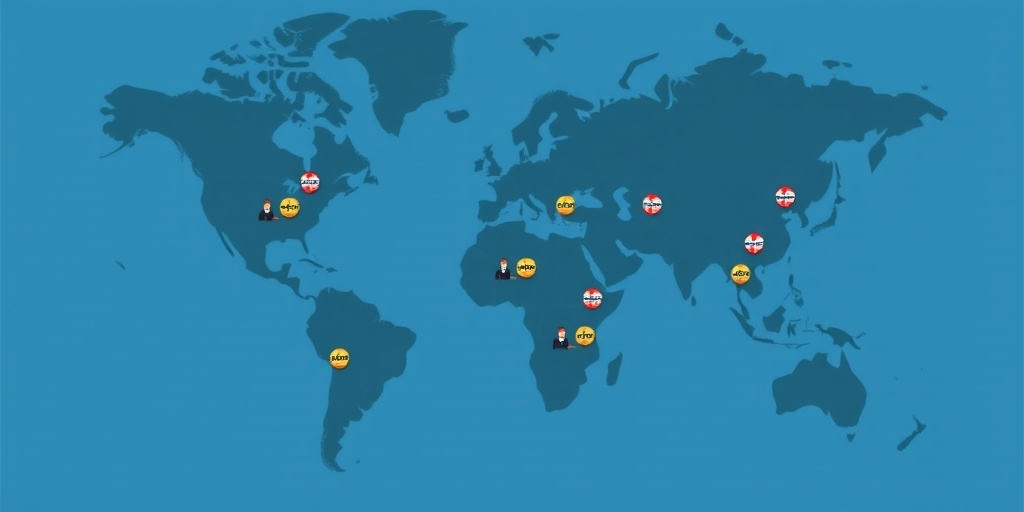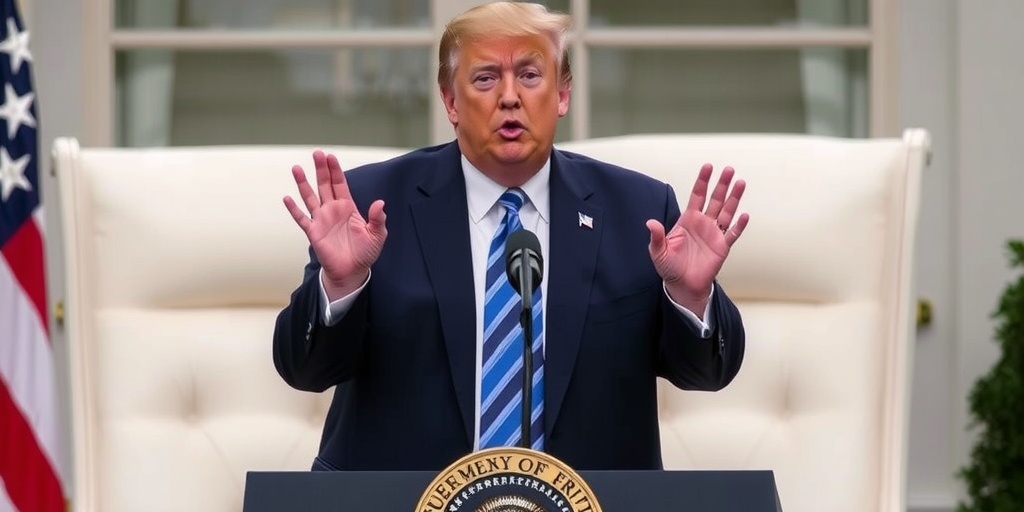Now Reading: Trump’s Significant Shift on Tariffs
-
01
Trump’s Significant Shift on Tariffs
Trump’s Significant Shift on Tariffs

Title: President Trump Advocates for Tariffs, Dismissing Concerns Over Rising Car Prices
Former President Donald Trump has made headlines once again by reaffirming his enthusiastic support for tariffs, deeming them “the greatest thing ever invented.” Trump, who once identified as a “tariff man,” claims that these trade barriers offer solutions to various economic issues facing the nation. He is adamant that imposing tariffs is essential for protecting American factories, reviving domestic manufacturing, and creating job opportunities while also pressuring foreign governments to comply with U.S. interests.
Since taking office, Trump has navigated a complex landscape of tariffs, repeatedly imposing and then suspending them on various imports. His administration’s fluctuating tariff policies have significantly transformed the global trading system, leading to discussions about their broader implications.
In a recent interview aired on NBC’s “Meet the Press,” Trump acknowledged a potential downside of his tariff strategies—the possibility of increased costs for American consumers. When asked about his thoughts on the anticipated rise in car prices due to tariffs on imported vehicles and auto parts, which he has promised will go into effect soon, his response was surprisingly dismissive. “I couldn’t care less,” he stated when pressed about the impact of these tariffs on the prices of cars in the U.S. market. He argued that if the prices of foreign cars were to rise as a result of tariffs, consumers would naturally shift their preferences to American-made vehicles.
In this latest exchange, the president reiterated that the tariffs would be permanent and expressed his hope that they would incentivize auto manufacturers and their suppliers to relocate operations back to the U.S. However, his perspective overlooks the complex realities facing American automakers. While the tariffs are positioned as a means of fostering domestic production, they could inadvertently harm American companies like Ford and General Motors, which rely on a cross-border supply chain, building a significant portion of their vehicles in Canada and Mexico.
Statistics highlight that nearly half of the vehicles sold in the United States are imported, with around 60 percent of auto parts used in vehicles assembled domestically sourced from overseas. According to a study by the nonpartisan Yale Budget Lab, the impending tariffs could inflate vehicle prices by an average of 13.5 percent, translating into an additional $6,400 for the average new car purchased in 2024.
Shawn Fain, president of the United Auto Workers union, weighed in on the issue during an appearance on CBS’s “Face the Nation.” While he acknowledged that tariffs might serve as a motivator for carmakers to bring jobs back to the United States, he emphasized that they are not a comprehensive solution for improving the livelihoods of American automotive workers. Fain made it clear that any relocations of jobs back to the U.S. must result in “good paying union jobs that set standards.”
Despite the concerns raised about the financial impact of these tariffs, Peter Navarro, a senior trade adviser to Trump, defended the initiatives by stating that they would generate approximately $100 billion in revenue. Navarro contended this revenue could be used to provide tax credits for Americans purchasing domestic vehicles, effectively minimizing the negative repercussions of rising prices. He urged the American public to place their trust in Trump’s vision for revitalizing the country’s manufacturing sector.
As the tariffs on imported cars and auto parts loom, the conversation surrounding their economic implications grows increasingly urgent. Supporters argue that these measures will bolster the U.S. auto industry while critics fear impending financial burdens on consumers.
In summary, Trump’s unwavering belief in the efficacy of tariffs marks a significant shift in U.S. trade policy. The president’s willingness to prioritize domestic manufacturing over potential consumer price hikes underscores the complexities inherent in such trade measures. As the nation prepares for the anticipated impact of these tariffs, all eyes remain on how this policy will unfold and shape the automotive landscape in the coming months.
Stay Informed With the Latest & Most Important News
Previous Post
Next Post
-
 01New technology breakthrough has everyone talking right now
01New technology breakthrough has everyone talking right now -
 02Unbelievable life hack everyone needs to try today
02Unbelievable life hack everyone needs to try today -
 03Fascinating discovery found buried deep beneath the ocean
03Fascinating discovery found buried deep beneath the ocean -
 04Man invents genius device that solves everyday problems
04Man invents genius device that solves everyday problems -
 05Shocking discovery that changes what we know forever
05Shocking discovery that changes what we know forever -
 06Internet goes wild over celebrity’s unexpected fashion choice
06Internet goes wild over celebrity’s unexpected fashion choice -
 07Rare animal sighting stuns scientists and wildlife lovers
07Rare animal sighting stuns scientists and wildlife lovers





















